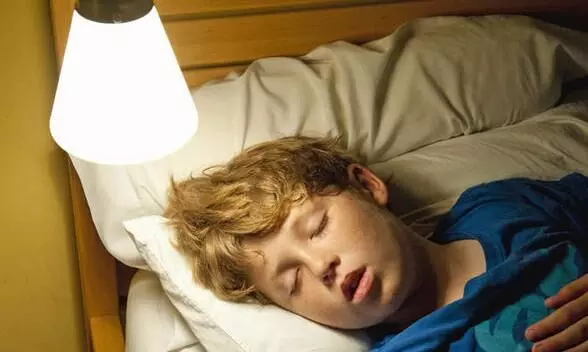
Sleeping with light on increases risk of heart disease and diabetes: study
text_fieldsEntering each night into the land of nod heals the body like in no other way. However, many out there go to bed with at least a foggy light on in order to have a sense of security. This could do more harm than good, and in some cases the habit may well lead to increased heart disease and diabetes, according to study reported by The Guardian.
Human body is not run on just food, water and minerals as we would assume. Many don't give a damn about sleep which is basic and a good night's sleep, on the other hand, has a lot to do with the body's internal clock or what medics say circadian rhythm. This internal clock is central to handling many a vital biological process, for instance from harnessing temperature to hormone release. The whole process is sychronised to the external cycle of day and night and body responds to day and night differently.
Ramming home this truth, many studies previously recommended against sleeping with light on through night. Because the habit, according to one study, is associated with obesity in women and type 2 diabetes among elderly people.
Another study in Netherlands found bright daytime lighting and low light at night help people with pre-diabetes control blood sugar levels. Now researchers in the US delved further into the aftereffects of sleeping with light on. The study found those who slept being exposed to artificial light reported worse glucose and cardiovascular regulation. This is evident in the case of a lot of people compared to those slumbered in the dark.
According to the study's co-author Dr Phyllis Zee from Northwestern University Feinberg School of Medicine, even a modest amount of light increased activation of autonomic nervous system leading to increased heart rate and decreased insulin sensitivity.
Dr Zee and colleagues studied glucose tolerance and heart rates of 20 people over two nights. Ten of the volunteers slept both nights in dim light while the other 10 spent one night in dim light and the next night under an overhead lighting " at around 100 lux" which might resemble an overcast day.
Both group however were found to have similar levels of melatonin, the sleep inducing hormone produced by the body. The group that spent a night with the lights on had higher insulin resistance in the morning, higher heart rate and lower heart-rate variability, the report said.
Prof Jonathan Cedernaes from Sweden's Uppsala University, though not part of the study, said that light during sleep could have such effects. He added that light is the strongest signal to circadian pacemaker which controls rhythms in physiology and behaviour including metabolism. Cedernaes recommended people to make sleeping environs as dark as possible—this is especially so for people working in night shift.






